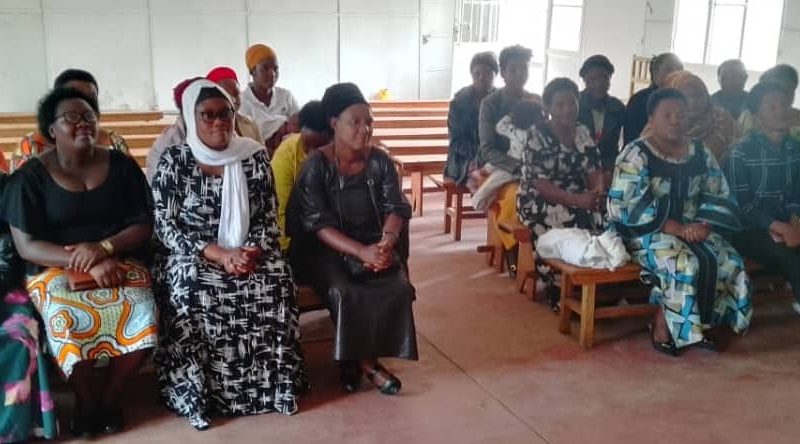30 Women Abandon Smuggling, Share Challenges of Transition
In Cyanika Sector, Burera District, 30 women who previously engaged in smuggling goods across the Ugandan border have turned to legitimate businesses and other income-generating activities. The women, who left behind a life of constant fear and sleepless nights evading authorities, now report enjoying safer and more profitable livelihoods.
Phiona Igirimbabazi, who quit smuggling two years ago, shared her experience of losing over RWF 3 million due to confiscated goods. She now earns a living selling fresh produce at the market.
“I used to smuggle products like Novida drinks and lost over RWF 3,350,000 when I was caught. That was my breaking point. I decided to leave smuggling and started selling vegetables like tomatoes at the market.
This change has greatly improved my life. I can now focus on my children, ensure they go to school, and provide a stable home—unlike before, when I was constantly arrested, leaving my husband and children stranded.”
Clementine Nyiransenga, who smuggled illicit alcohol branded as “Rasta” from Uganda, echoed similar sentiments. Having quit seven years ago, she now sells charcoal and has found peace in her new line of work.
“I’ve been out of smuggling for seven years now. I sell charcoal, and even though I make less than before, my earnings are safe and reliable. Back then, I was arrested so often that every penny I made went to waste. Now, I’m no longer in constant fear, and my income sustains my family.”
These women have formed a savings and loan group called “Turwanye Magendu” (Let’s Fight Smuggling), where each member contributes RWF 500 monthly, totaling over RWF 15,000 collectively. The group aims to foster financial discipline and help members expand their businesses.
Safia Mategeko, head of the Mukamira Community-Based Organization (MCBO), explained the group’s significance in addressing broader issues like drug trafficking and human trafficking.
“During a recent awareness campaign, we discovered these 30 women who had left smuggling. We encouraged them to form a group and offered guidance on rebuilding their lives.
We also advised them to open a bank account instead of keeping savings under their mattresses, ensuring the security of their funds and attracting potential investors or donors to support their initiatives.”
Mategeko added that the group will play a vital role in sensitizing others still involved in smuggling, including those in prisons and transit centers, about the risks and consequences of their actions.
Jean Baptist Kagaba, Burera District’s Director of Good Governance, commended the women for their decision to leave smuggling and urged them to focus on trading locally produced goods.
“Your decision to quit smuggling is commendable. Let me assure you, there’s no real benefit in it. Smuggling doesn’t just harm you personally; it also deprives the country of revenue that could be used for infrastructure like roads, hospitals, schools, and markets.
We don’t want to see any of you back in prison or transit centers for smuggling. Focus on trading locally available goods and grow your businesses here.”
The event, held on Saturday, December 28, 2024, brought together the 30 women, MCBO representatives, local authorities, and security officials, including the army and police.
Despite their progress, the women highlighted financial constraints as their biggest challenge. Many have struggled to recover from the losses incurred during their smuggling days and face difficulties finding suitable locations to run their small businesses.
The gathering concluded with the women saving a collective RWF 60,000, sourced from the RWF 2,000 daily allowances they received for attending the event.

